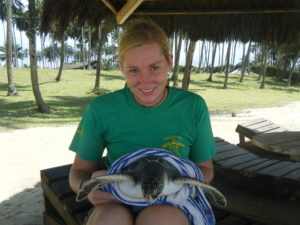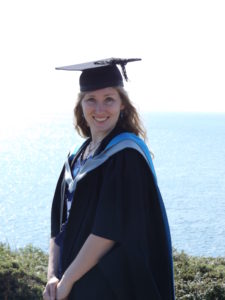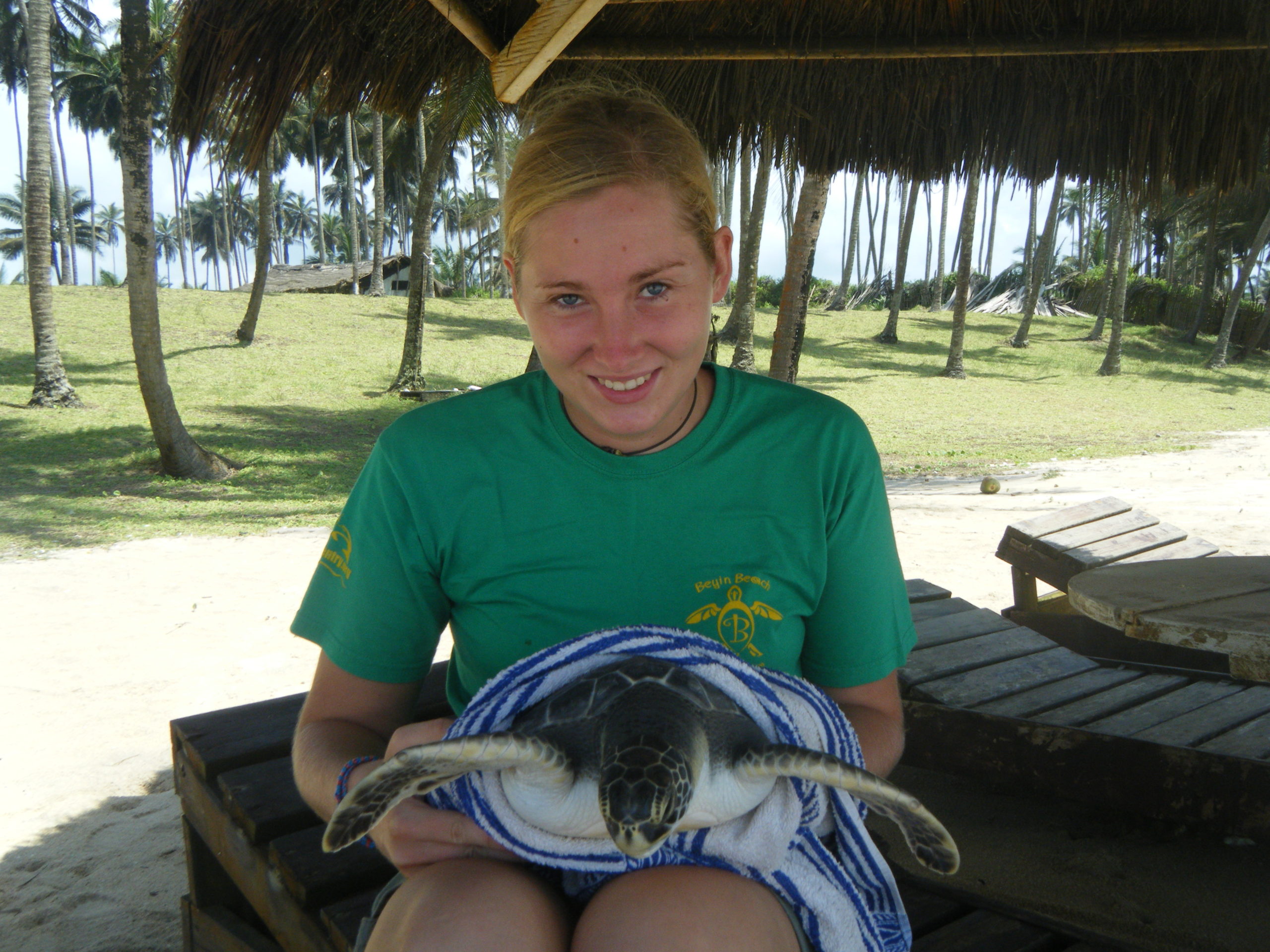Our world-leading marine research underpins a wide range of undergraduate and postgraduate programmes: Research-led teaching | Exeter Marine | University of Exeter. In our Graduate in Focus series we look at the achievements of our MSc graduates who have excelled in conservation around the world since studying with us.
Today we meet Claire Tanner, MSc Conservation and Biodiversity graduate (2016) and now a PhD student in shorebird behaviour and evolution at the University of Bath!

Hi Claire! First off, why don’t you tell us what you are up to now and how you got there?
Before I joined the MSc in Conservation and Biodiversity programme in 2015, I had already worked as a sea turtle biologist, a research assistant and a programme director in conservation organisations in Costa Rica, Cape Verde and Ghana. I decided that I wanted to develop a career in research, which was why I chose to undertake an MSc, and then to apply for PhDs. My MSc dissertation was focused on how climate change affected the sex ratios of sea turtles, and for my PhD at the University of Bath, I am currently investigating how sex ratios in adult shorebirds could potentially affect the mating system.
What did you enjoy most about studying your MSc with us at the University of Exeter Cornwall Campus?
Cornwall is such an amazing place to live, with many different habitats to explore during local field trips, the beach nearby to relax with friends, and so many different watersports and outdoor sports to do!
Penryn Campus has such inspiring lecturers that are completing cutting-edge research, and there are many opportunities within modules and extra-curricular talks to hear and meet guest speakers from different career fields. The community of doctoral students and lecturers at Penryn Campus are so enthusiastic about their research, and really supportive of students developing themselves for their chosen careers. It was great to be able to discuss research with lecturers and research staff, especially when the research being conducted is always so current, interesting and progressive.
The lecturers at the CEC were always really supportive and approachable, which made it a very comfortable environment in which to study and enabled me to develop as a scientist and improve my research skills. I really loved the field trip module, which further developed my field work and collaborative skills. It was amazing to be able to visit Kenya to study conservation and learn from conservation managers on the ground, comparing different conservation methods, and discussing future research projects.

What skills and experiences from the MSc have been most useful in your career?
During my Masters course, I gained many transferrable skills which have been essential for my PhD, including developing my academic writing, improving my ability to make and present posters for presentations and social media, data analysis, and public speaking. It has also given me the confidence to develop as an independent researcher. Before coming to University of Exeter, I had never used R. The statistics module taught me R within 3 months (which is amazing as it’s a whole new coding language), to the extent that I could use it competently for my dissertation results. I now use R extensively for my statistical analyses. It is a skill that I will continue to develop as I use different analyses and models throughout my career.
Do you think there are any factors that make the University of Exeter a unique place to study?
It is the perfect place for students who love the outdoors as there are so many opportunities to take part in outdoor activities. The course is unique and offered so many opportunities to develop my skills for my future career.
I loved that Penryn Campus was a green campus. It was very environmentally friendly with electric campus vehicles, recycling schemes and the “Turn on the Tap” scheme. I was able to start a “Ban the Bottle” campaign with peers to reduce the use of single use plastic bottles on campus. This was then continued with the next cohort and created the water-bar on campus! It was great to be part of a change of behaviours amongst students.
The University of Exeter has also achieved Silver Athena SWAN status. This really inspired me by seeing more women in research and science. Having visited other Universities without such a high Athena SWAN status, it has made me realize just how unique and important this was during my studies.

Finally, why did you choose your career path and do you have any advice for those looking to pursue something similar?
Keep persevering. I applied for PhDs for 2 years while working in an office. It could get disheartening at times, but PhDs are so competitive now for behavioural and evolutionary topics, that it’s very important to keep going, get feedback, and improve applications. Don’t lose hope!
Thanks Claire!
If you want to find out more about any of our suite of #ExeterMarine Masters and Undergraduate courses use the links below!
- NEW: MSc in Marine Environmental Management
- NEW: MSc in Marine Vertebrate Ecology and Conservation
- MSc in Conservation and Biodiversity
- MSc in Conservation Science and Policy
- MSc in Evolutionary and Behavioural Ecology
- MSc in Sustainable Development
- MSc in Environment and Human Health
- MSc in Renewable Energy Engineering
- BSc Marine Biology
- BSc Zoology
- BSc Environmental Science
- BSc Conservation Biology and Ecology
- BSc Evolutionary Biology
- BSc Animal Behaviour
- BEng Renewable Energy Engineering

